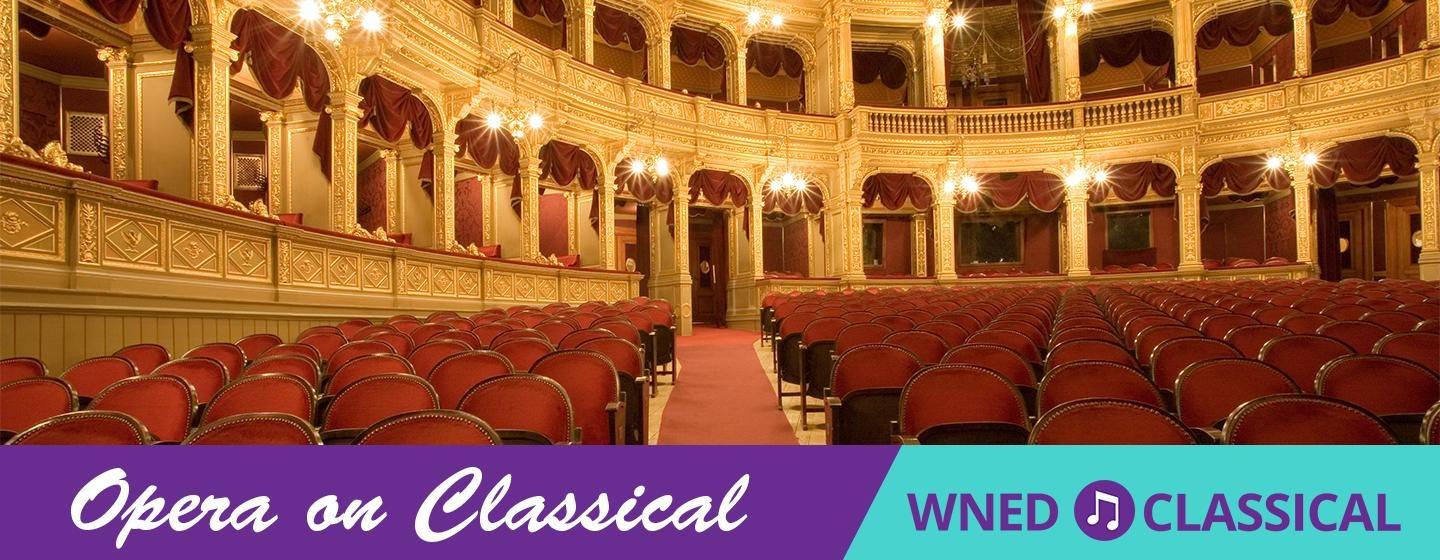
Opera on WNED Classical
Enjoy complete performances of world famous operas from Verdi, Puccini, Mozart and many more Saturdays at 1pm.
For many years, radio broadcasts from "The Metropolitan Opera" have been a Saturday tradition in many American households. Met Opera broadcasts are usually performed live from Lincoln Center in New York City and can be heard from December through May on WNED Classical.
The WFMT Radio Network Opera series complements the Metropolitan Opera Broadcasts, filling in the schedule to complete the year. From Milan to New York, Barcelona to Chicago, you'll have a front-row seat to performances from some of the world’s greatest opera companies and performers.
2024 WFMT Radio Network Opera Series | Saturdays at 1pm
From Milan to New York, Barcelona to Chicago, WFMT gives you a front-row seat to performances from some of the world’s greatest opera companies and performers.
The 2024 WFMT Radio Network Opera Series, runs June 12 through November 30, 2024. This first portion of the season spans through September 7, and features thrilling performances from many of the great opera houses and theaters of Vienna, France, London, Italy, and more, with world-renowned artists.
Broadcasts can be heard on WNED Classical at 1pm every Saturday except as noted.
Tune in at 94.5 FM in Buffalo or anywhere in the world our website's live player or WNED Classical app.
See what’s coming up below:
October 19 | Samson / Jean-Philippe Rameau | Aix-en-Provence Festival
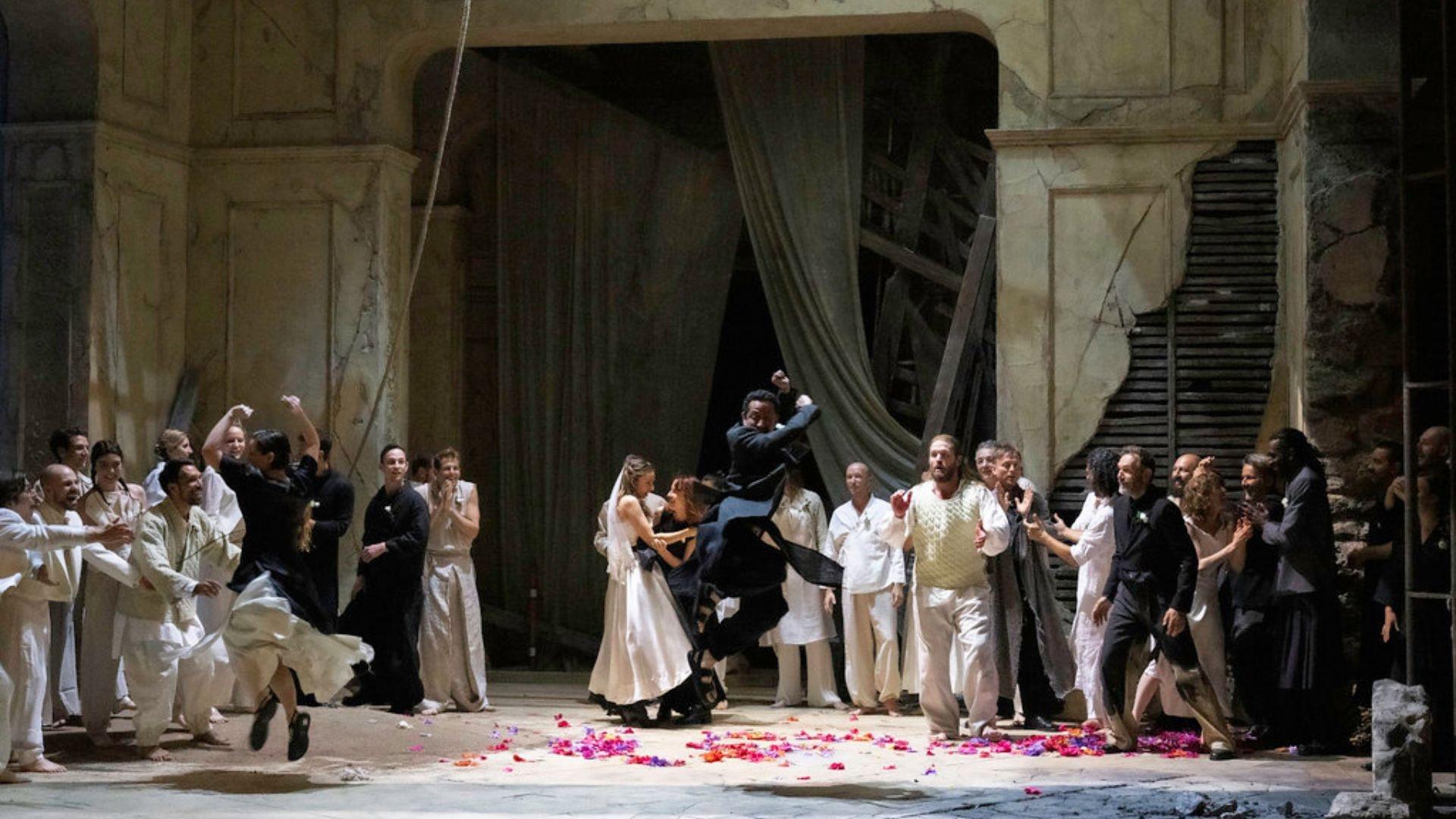
When, in 1733, the most brilliant mind of his time, Voltaire, joined forces with the greatest composer, Rameau, to carry out an ambitious reform of lyric art, the result was the biblical opera Samson . But judged to be controversial, the libretto was censored and the score, lost – taken up in uncertain fragments in later works. Haunted by this singular project that has become one of the most beautiful chimeras in the history of opera. Samson is God’s chosen one but his extraordinary power isolates him as much as it distinguishes him: a series of deceptive loves will turn him into a destructive impulse, making the biblical Hercules the first mass-murdering suicide. Surrounding Jarrett Ott, Jacquelyn Stucker and Lea Desandre in the main roles, the Pygmalion choir and orchestra become the full actors in a sublime, extraordinarily contemporary fresco.
Composer: Jean-Philippe Rameau (Concept by Raphaël Pichon)
Libretto: François-Marie Arouet
Venue: Grand Théâtre de Provence
Presenting Company: Aix-en-Provence Festival
CAST:
Samson: Jarrett Ott
Dalila: Jaquelyn Stucker
Timna: Lea Desandre
Achisch: Nahuel Di Pierro
Elon: Laurence Kilsby
The Angel: Julie Roset
Ensemble: Aix-en-Provence Festival / Pygmalion Orchestra and Chorus
Conductor: Raphaël Pichon
October 26 | The Shining / Paul Moravec | Lyric Opera of Kansas City
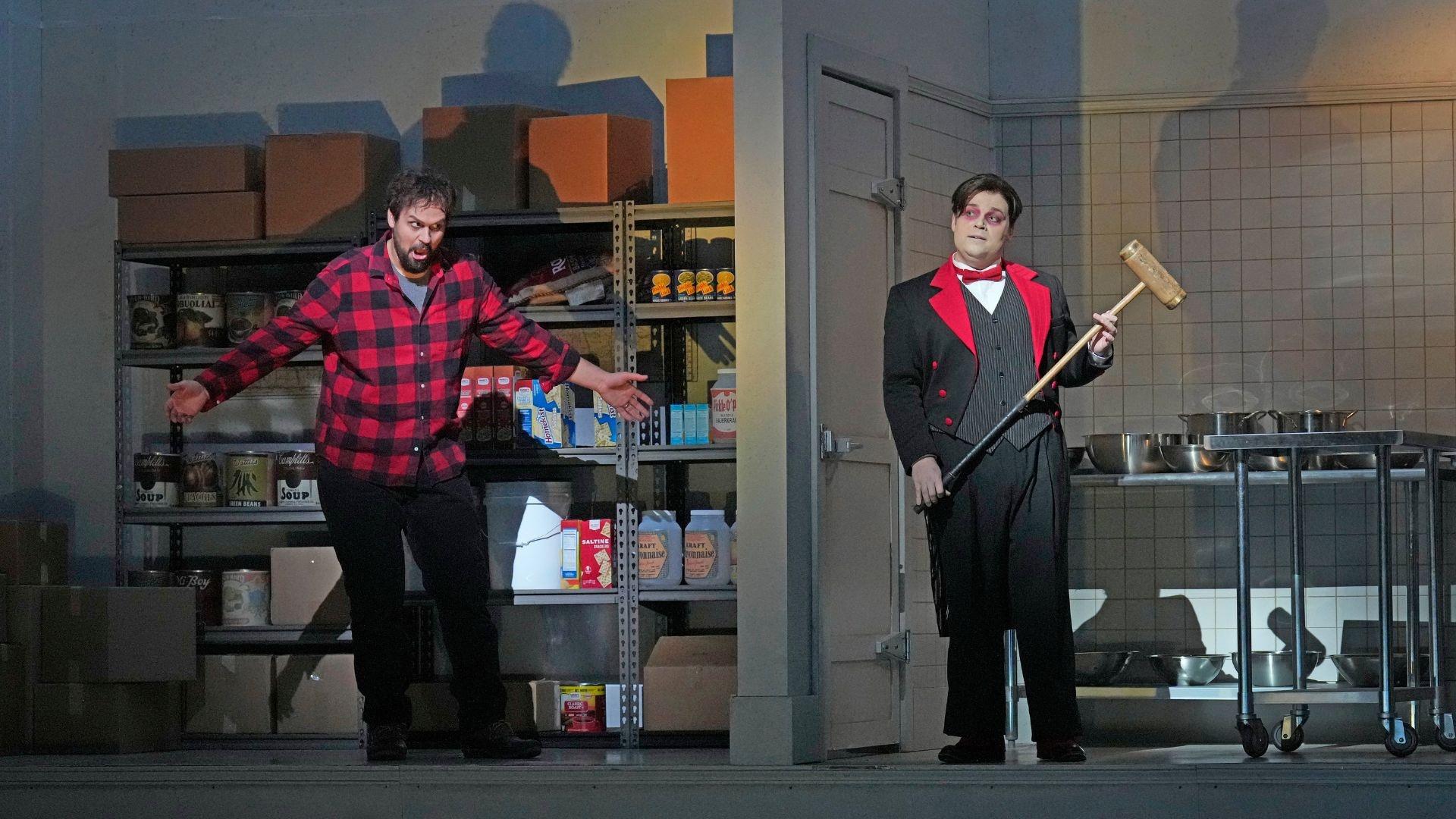
Based on Stephen King’s best-selling novel and with music as haunting as the story is horrifying, The Shining discovers new frightening and fulfilling depths.
Act I
Jack Torrance has been engaged as winter caretaker for the Overlook Hotel in a remote part of the Colorado Rockies and arrives there with his wife, Wendy, and son, Danny, during the last week of September, at the end of the hotel’s season. Wendy and Jack welcome the change the hotel will bring to their lives, believing that the experience will bring the family closer together; Jack is also happy that he’ll finally have time to finish his play. The general manager, Stuart Ullman, gives the Torrances a tour of the hotel and touts the history of its famous guests. The family is then introduced to the hotel cook, Dick Hallorann, who shows Wendy and Danny to the kitchen.
Ullman privately expresses his concerns to Jack about his personal history, which he has learned includes physical abuse and alcoholism. Jack reassures Ullman that he has conquered his problems and that all will be fine. Bill Watson takes Jack to the basement where he instructs him on the boiler and tells some stories about the hotel’s nefarious past: a previous caretaker, Delbert Grady, killed his wife and two daughters before taking his own life; another guest, Mrs. Massey, committed suicide in a bathtub after her young lover abandoned her.
At the same time outside the hotel, Hallorann confides in Danny that he senses the boy shares a second sight, the shining, that Hallorann’s grandmother detected in him as a child. He also tells Danny that fears about the hotel can be controlled but encourages Danny to call out to him if the Torrance family is in danger. Ullman, Watson, and Hallorann bid the Torrances farewell, leaving the family alone on the porch of the Overlook.
One evening several weeks later, Wendy reads Treasure Island to Danny while Jack works on his play. As Danny leaves to brush his teeth before being tucked in, the couple affirms their love for each other. Danny is trapped in the bathroom and once he escapes, appears traumatized, claiming to have had dark visions. Jack tries to shake Danny out of it, but Wendy stops him, revealing that Jack once injured the child. She vows to take Danny to the doctor in town the following day for a check-up. As she tucks Danny in and sings him a lullaby, Jack recalls his own childhood abuse at the hands of his father, Mark. Danny utters a curious message “redrum” which Wendy dismisses as a reference to Treasure Island.
Jack sifts through boxes of memorabilia in the basement a week or so later, finding a scrapbook assembled by The Manager. He learns more about the Overlook’s infamous past, including Horace Derwent’s sale of the hotel to the Mafia and a subsequent hit that occurred there years later. He also reads about the tragedies of the Grady family and Mrs. Massey. An invitation to a New Year’s Eve masked ball drops from the scrapbook and ignites Jack’s imagination. He vows to tell the hotel’s story. Wendy and Danny return from the doctor where Danny has received a clean bill of health. Disturbed about Jack’s obsession with the Overlook, Wendy requests that they all leave immediately, but Jack dismisses the idea.
The first week of November. Wendy is awakened by strange noises, and Danny runs into his parent’s bedroom in a panic. Jack checks the elevator, then the ballroom, where he momentarily hears people and finds a dog mask and a giant croquet mallet. He is shaken, but composes himself, returning to their room to reassure Wendy, who still believes they should leave the hotel.
Danny has approached Room 217 several times in the past weeks, and now, in late November, finally enters it with a key. In the hotel office, a ranger on the CB radio warns Jack of an upcoming blizzard. Suddenly, the ranger’s voice becomes that of his father Mark, telling Jack to kill his family. Jack smashes the radio with the mallet. Wendy rushes in and is horrified to learn that Jack has destroyed their only contact with the outside world. Danny is found with his clothes wet, bruises around his neck, and lipstick marks on his face. As Jack rallies to protect his family, the structure of the hotel collapses, and all of its ghosts appear, including Delbert Grady, Mrs. Massey, Horace Derwent, and the guests of the New Year’s Eve party. Danny cries out for Hallorann as a light snow begins to fall.
Act II
One day in early December. Jack returns to the basement for the boiler’s daily maintenance. Grady appears and encourages Jack to apply the same discipline to his son that Grady meted out to his daughters. He then invites Jack to join him for the masked ball. Upstairs, Danny warns his mother that they have gotten to his father. Wendy tries to mitigate his fears, but once Danny is alone, he again calls out for Hallorann.
Jack enters the ballroom where the masked ball is in full swing and orders drinks from Lloyd, the bartender. Onstage, Horace Derwent, Grady, and Lloyd raise their voices in song, soon joined by Mark Torrance and then Jack, before he collapses and the party dissolves. Finding her husband sprawled on the floor, Wendy tries to help him upstairs. When he attempts to strangle her, she renders him unconscious by smashing a bottle over his head, and she and Danny lock him inside the pantry. When Jack comes to and demands to be released, Wendy leaves the kitchen with Danny, taking a large knife with her. Grady enters and helps Jack free himself from the pantry.
Upstairs in the caretaker’s quarters, Wendy tries to assuage her son’s fears before returning to the kitchen for food. She sees ghosts in the ballroom but convinces herself they are not real. Jack suddenly attacks her with the mallet. Wendy plunges the knife into his back and runs back to the quarters, locking the door. Jack follows her and almost breaks through the door, when Wendy slices his hands with razors she has retrieved from the bathroom. Grady and Derwent appear to Jack, telling him to dispose of Wendy later, as Hallorann is suddenly approaching the hotel on a Snowcat and must be attended to.
Hallorann enters the hotel. Danny runs toward Hallorann, attempting to warn him, but Jack strikes Hallorann with his mallet, rendering him unconscious. Jack corners Danny, but Danny bravely stands up to him, saying, “You are not my father.” Returning momentarily to his senses, Jack begs Danny to run, allowing him to escape. Derwent, Grady, and Lloyd appear, castigating Jack for his failure and warning him that the boiler is about to explode.
Hallorann revives and drives Wendy and Danny away from the hotel in the Snowcat. In the basement, Jack resolves to let his family live. When they are out of harm’s way, he allows the boiler to explode, causing the entire hotel to burst into flames.
Composer: Paul Moravec
Libretto: Mark Campbell
Venue: Kauffman Center for the Performing Arts
Presenting Company: Lyric Opera of Kansas City
CAST:
Jack Torrance: Edward Parks
Wendy Torrance: Kelly Daduce
Dick Halloran: Aubrey Allicock
Lloyd the Bartender: Roger Honeywell
Mark Torrance: Malcolm Mackenzie
Ensemble: Lyric Opera of Kansas City
Conductor: Gerard Schwarz
November 2 | La Sonnambula / Vincenso Bellini | National Centre for Performing Arts (China)
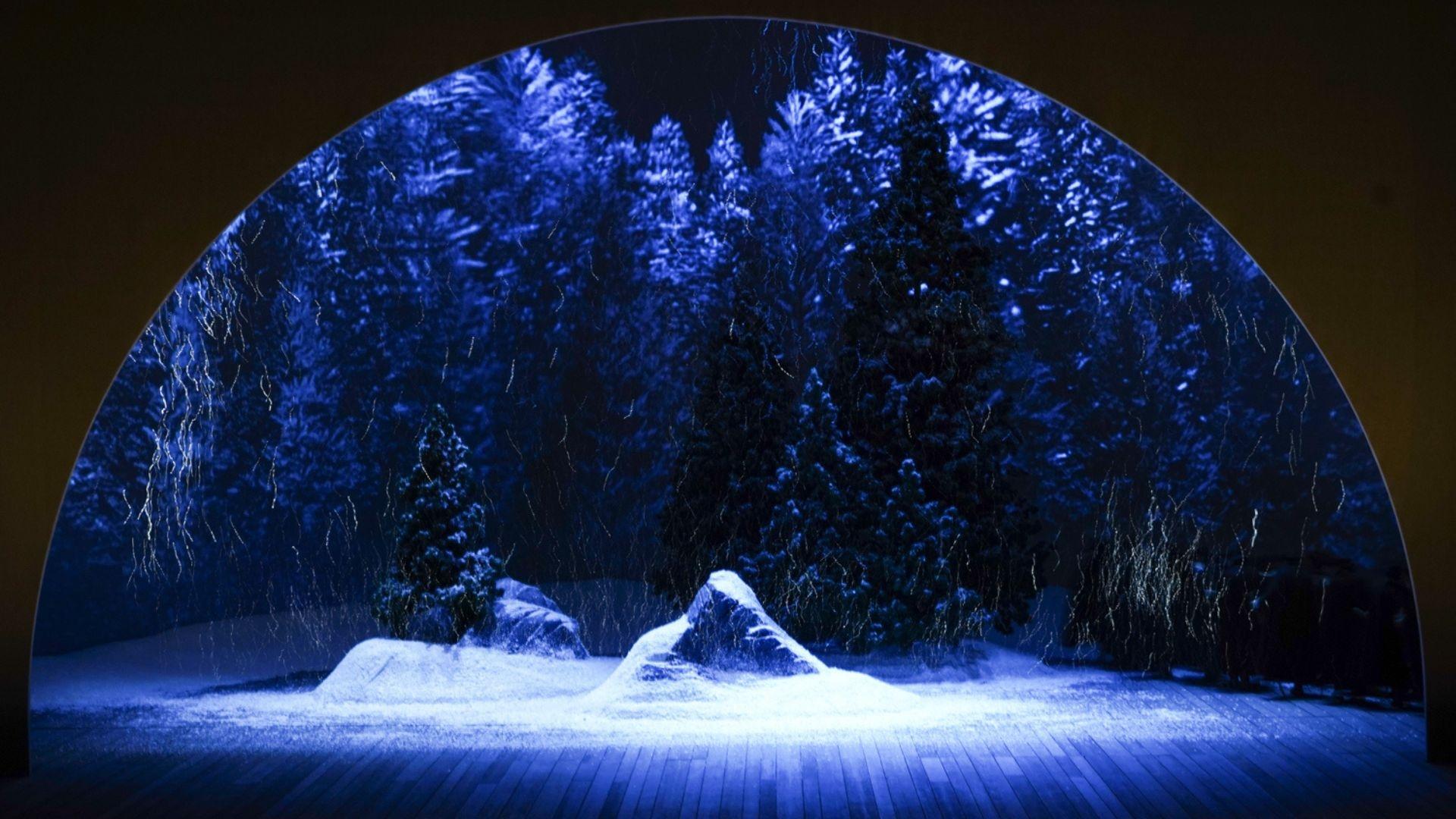
In a Swiss village of the 19th century, beautiful girl Amina is engaged to the young farmer Elvino, making hostess Lisa so sad that she turns back on Alessio, who carries a torch for her.On the eve of the wedding, a stranger arrives. He is Il Conte Rodolfo and checks in at Lisa’s inn. Hearing that Il Conte Rodolfo is the new lord of their village, Lisa comes to his room late at night to flirt with him. But Amina is sleepwalking and bursts into the room. Lisa hides away quickly, and Rodolfo leaves the room to avoid a fuss. Lisa, however, takes Elvino to Rodolfo’s room, where Amina wakes up, and Elvino calls off the wedding in rage. Although Rodolfo speaks for Amina’s innocence, Elvino remains unmoved and decides to marry Lisa. Rodolfo explains to Elvino and villagers that Amina is a sleepwalker, but none of them believe him. Suddenly, Amina begins to sleepwalk again and all those present, holding their breath, don’t arouse her from sleep until she arrives at a safe place. As a result, Elvino agrees to marry her yet again.
Composer: Vincenzo Bellini
Libretto: Felice Romani
Venue: National Centre for the Performing Arts Opera House
Presenting Company: National Centre for the Performing Arts Opera House
CAST:
Amina: Dilbèr
Elvino: Antonio Siragusa
Il Conte Rodolfo: Wenwei Zhang
Lisa: Xintong Li
Teresa: Yanting Yang
Alessio: Meng Wang
Un Notaio: Jing Kou
Ensemble: NCPA Orchestra and Chorus
Conductor: Daniel Oren
November 9 | LAN Huahua / Qianyi Zhang | National Centre for Performing Arts (China)
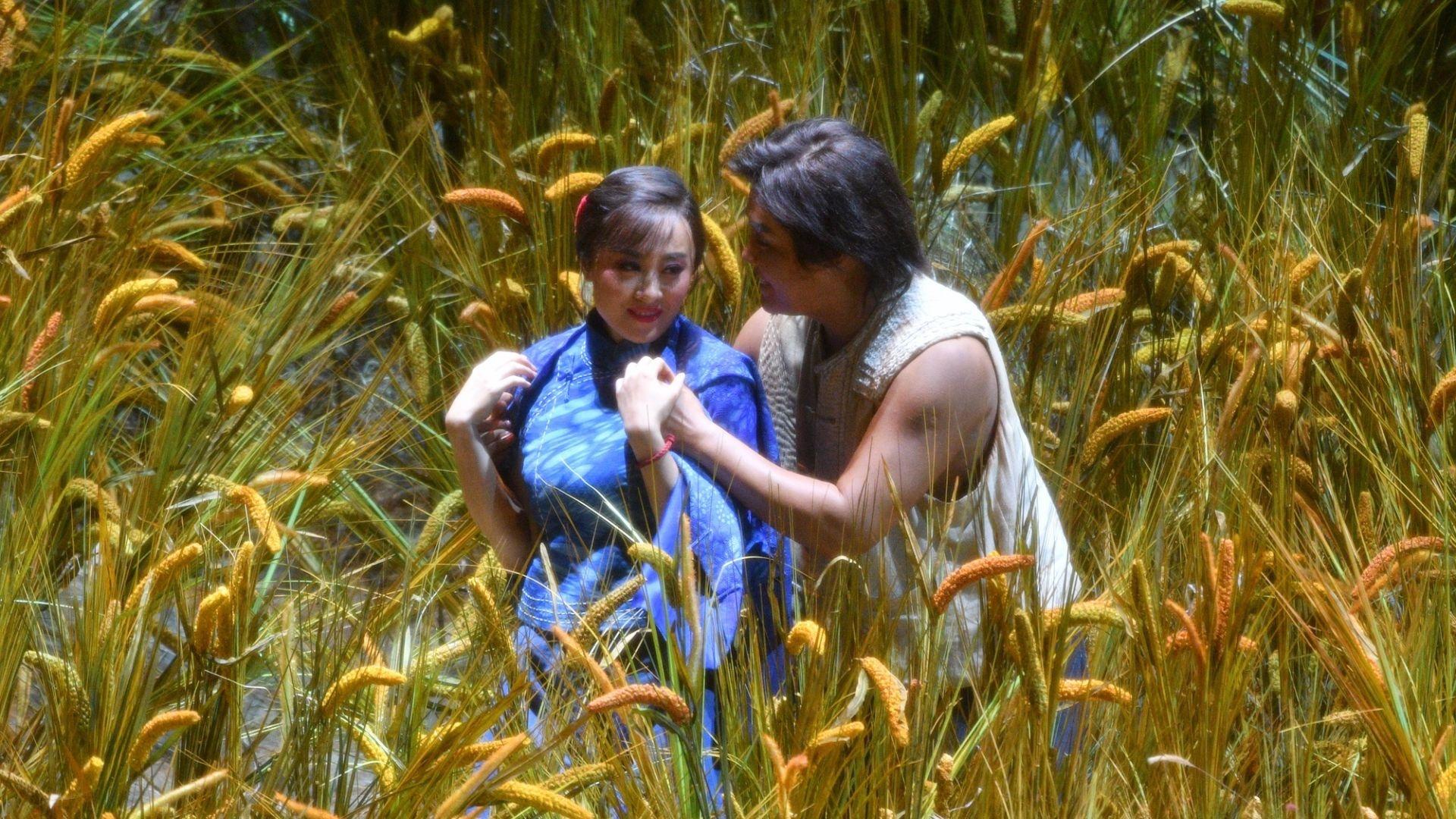
LAN Huahua, a beauty living in Lanjiahe Village, falls in love with “Luotuozi”, a young coachman who serves in an out-of-town caravan. They often date secretly in the fields. The villagers feel aggrieved at LAN Huahua’s behaviour and regard her as a loose woman. In order to settle the issue, they invites the venerable squire ZHOU to uphold justice. And then Luotuozi is forced to leave the village.
However, LAN Huahua has been pregnant, and it’s Luotuozi’s. Her father is so exasperated that he wants to kill her. Squire ZHOU suggests that LAN Huahua marry his poor, silly shepherd “Ganyang”. For the fetus’s sake, she assents to their marriage regardless of humiliation.
Ganyang is to marry such a beautiful girl! This news causes a sensation in the village. But LAN Huahua refuses Ganyang to touch her. She tells Ganyang why she must get married. Ganyang is shocked and sad. Actually, squire ZHOU has wanted LAN Huahua for a long time, so he seizes the chance to tell LAN Huahua that he can make her live a better life, only if she does what he wants. LAN Huahua is disgusted and gives him a flat refusal.
Squire ZHOU says in public that LAN Huahua has someone else’s baby. Hearing this, LAN Huahua’s father dies of shame and resentment while Ganyang breaks into a furious rage as nobody could expect, rebuking squire ZHOU for knowing everything but lying to him. Then, he leaves Lanjiahe. With indignation, LAN Huahua disputes that squire ZHOU is the one who really offends public decency. Also, villagers smell a rat in the matter. Squire ZHOU knows his moral and upright image has collasped, and he announces that Lanjiahe must drive LAN Huahua away.
Like Luotuozi, LAN Huahua is forced to leave her hometown at the end. She can find no way out but death, only leaves a song named LAN Huahua to be sung by generations.
Composer: Qianyi Zhang
Libretto: Daming Zhao
Venue: National Centre for the Performing Arts Opera House
Presenting Company: National Centre for the Performing Arts Opera House
CAST:
LAN Huahua: Lili Zhao
Lord Zhou: Zhijing Guan
Ganyang: Haoyin Xue
Luotuozi: Yingxi Zhang
LAN Huahua’s Father: Songhu Liu
Matchmaker: Miao Hao
Ensemble: NCPA Chorus & Qingdao Symphony Orchestra
Conductor: Zhang Guoyong
November 16 | Der fliegende Holländer / Richard Wagner| National Centre for Performing Arts (China)
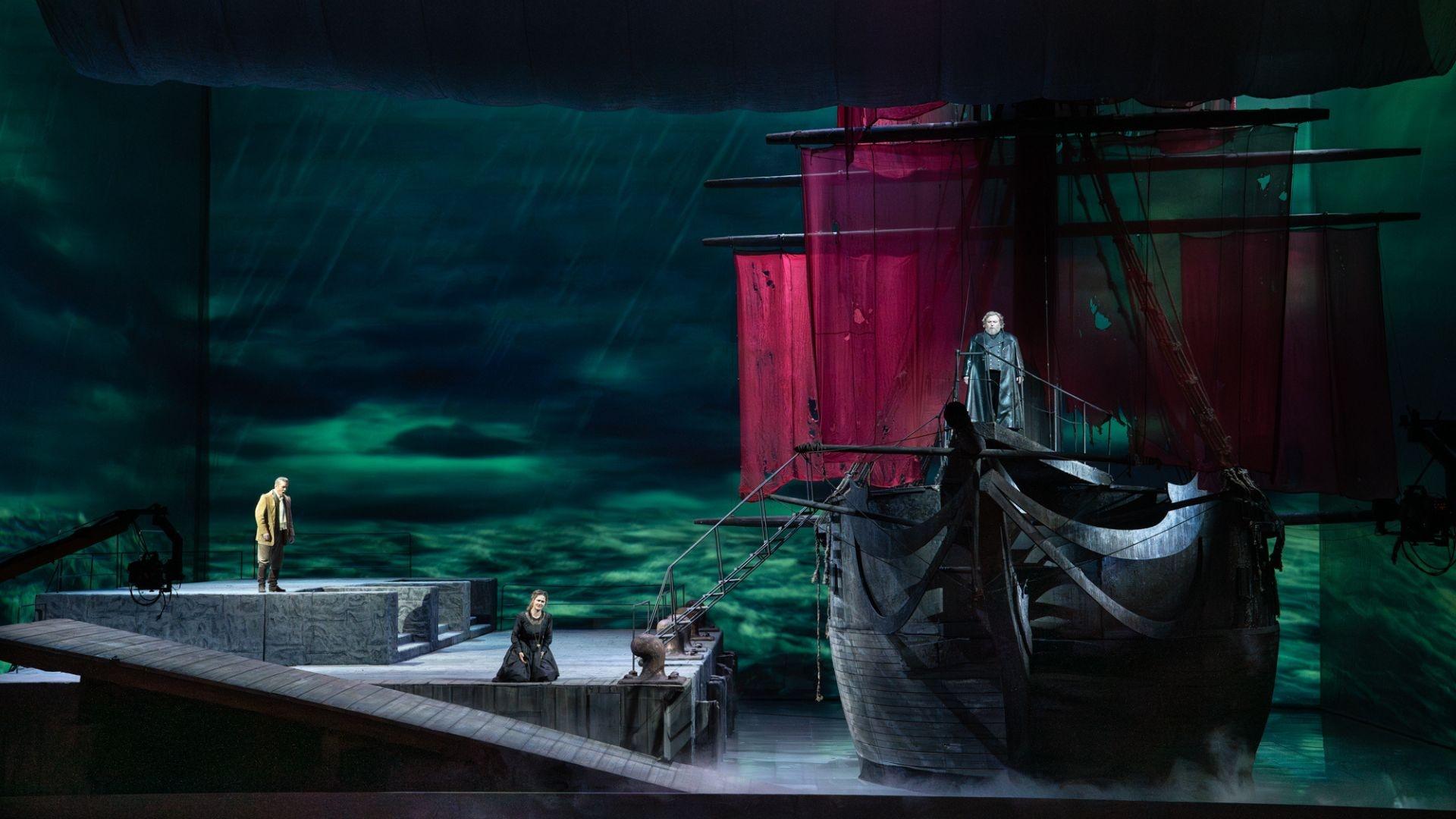
A ghost ship that can never make port, doomed to sail the oceans forever. After storms and high seas, true love arrives. Der fliegende Holländer represents the beginning of Wager’s artistic maturity and marks his first step towards the creation of “Music Drama”. Based on Scandinavian folklore Wagner wrote this magnificent and romantic mythical opera inspired by his own stormy sea crossing experience. Both the music and libretto were written by the maestro himself. Since its premiere, Der fliegende Holländer has always been one of Wagner’s most performed operas, attributing greatly to its gloomy and magical texture that mixes with relaxing and elegant touches occasionally, its composition method that fuses human voice perfectly with orchestral music, its story of intertwined love and fate, and its profound philosophical theme of sacrifice and redemption.
Composer: Richard Wagner
Libretto: Richard Wagner
Venue: National Centre for the Performing Arts Opera House
Presenting Company: National Centre for the Performing Arts Opera House
CAST:
Der Holländer: Ólafur Sigurdarson
Senta: Diana Lamar
Daland: Dimitry Ulyanov
Erik: Tuomas Katajala
Mary: Shasha Niu
Der Steuermann: Chong Wang
Ensemble: NCPA Orchestra and Chorus
Conductor: Marcus Bosch
November 23 | Un ballo in maschera / Guiseppe Verdi | National Centre for Performing Arts (China)
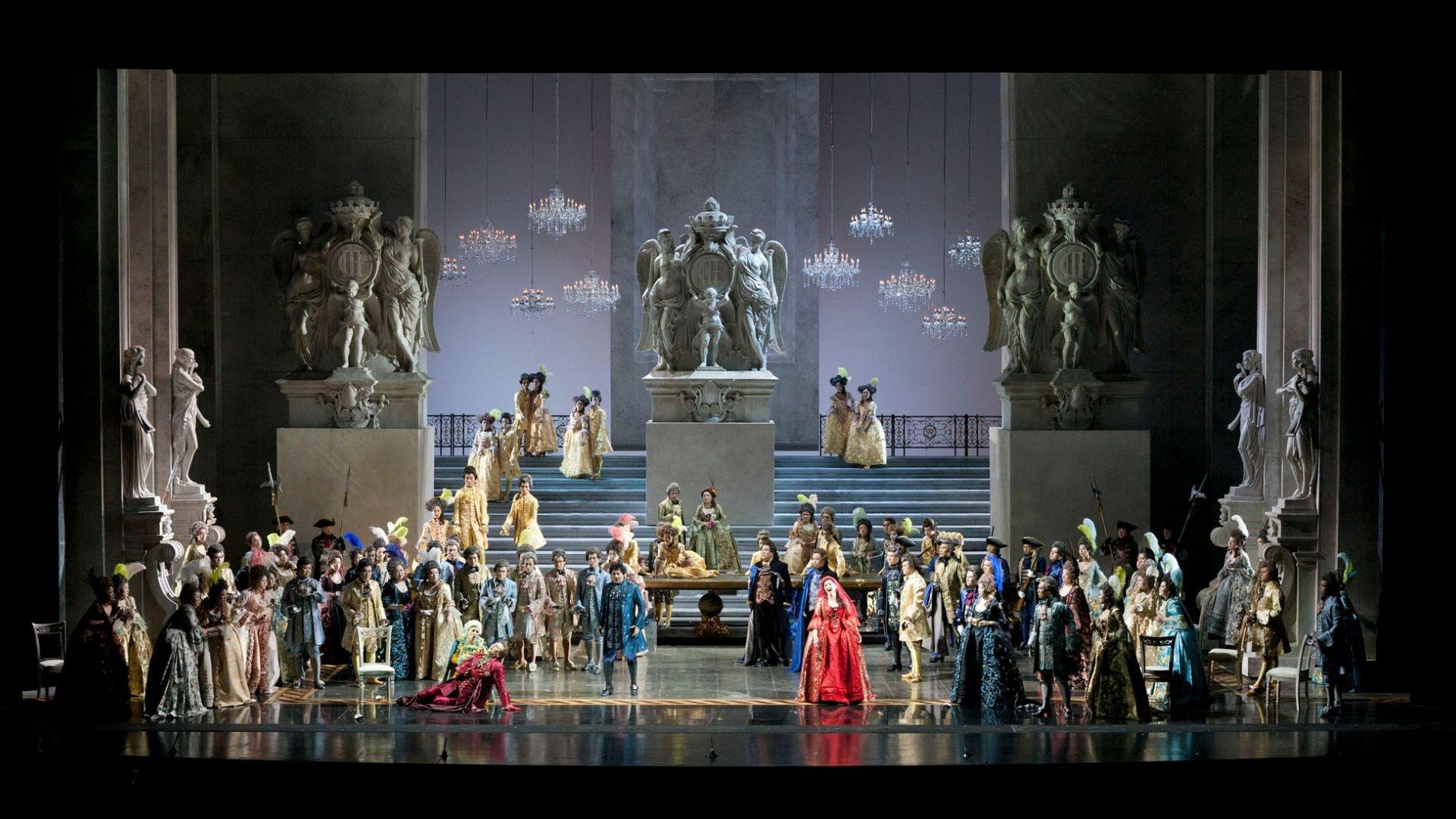
The Un ballo in maschera is adapted based on the story of assassination of King Gustav III of Sweden in the 18th century. Through fictional odd story, the opera reveals Amelia’s ambivalence when pursuing extramarital romantic love and safeguarding her husband’s dignity and rolls out the real high life of Italy in the 18th century. Un Ballo in Maschera, La forza del destino and Don Carlo are crowned as the three major masterpieces created by Verdi in his mid-life. Un Ballo in Maschera can be described as one of Verdi’s most talented works in terms of music, which not only consists of many classical arias, but also achieves the culmination of the Romantic opera from the perspective of art. This work truly achieves grand and magnificent realm in view of drama contents and musical charm.
Composer: Guiseppe Verdi
Libretto: Antonio Somma
Venue: National Centre for the Performing Arts Opera House
Presenting Company: National Centre for the Performing Arts Opera House
CAST:
Gustav III: Marius Manea
Amelia: Karine Babajanyan
Renato: Lado Ataneli
Oscar: Gladys Rossi
Ulrica Arfvidsson: Bernadett Wiedmann
Cristiano: Songhu Liu
Ribbing: Jie Mei
Horn: Peixin Chen
Judge: Weizhao Mao
Amelia’s Servant: Ruidong Cao
Ensemble: NCPA Orchestra and Chorus
Chorus Director: Miao Bosch
Conductor: Jia Lü
November 30 | Capriccio / Richard Strauss | Vienna State Opera
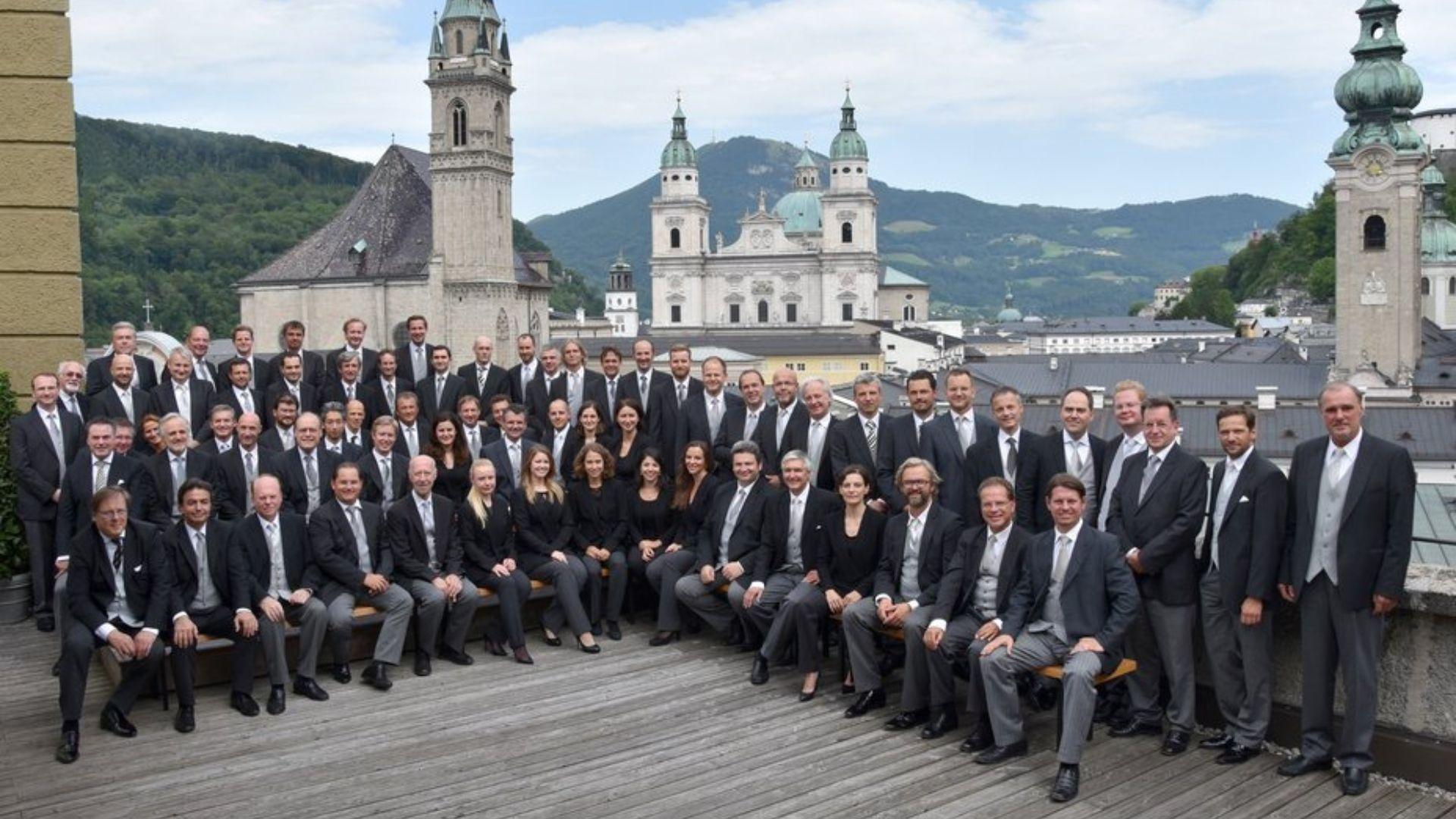
Based on an idea by Stefan Zweig, Richard Strauss’s Capriccio, his final work for the stage, circles around a problem that is as old as the genre of opera itself: the relationship between words and music. Set in Paris around 1775, the plot combines an aesthetic debate with the rivalry between the poet Olivier (played by Konstantine Krimmel) and the musician Flamand, who are both wooing Countess Madeleine. Strauss regarded this highly unusual work as his ‘testament’. When Clemens Krauss, co-author of the libretto, mooted the possibility of them continuing their collaboration, Strauss pointed to the famous monologue of the Countess that is preceded by the hauntingly beautiful ‘Moonlight Music’: ‘Isn’t this D flat major the best conclusion to my theatrical life-work?’
‘A Conversation Piece for Music’ was the subtitle Richard Strauss gave to his final opera Capriccio, finished in 1941. A poet and a composer vie for the affections of the young, arts-loving Countess Madeleine, and soon get mired in a spat over two issues. Which is the greater art: poetry or musical composition? And what is more crucial in an opera: the words or the music? For Madeleine, settling on an answer proves just as challenging as choosing between her two suitors — and so in the end the decision is left to the audience.
Composer: Richard Strauss
Libretto: Richard Strauss / Clemens Krauss
Venue: Grosses Festspielhaus, Salzburg
Presenting Company: Saltzburg Festival
CAST:
The Countess: Elsa Dreisig
The Count: Bo Skovhus
Flamand: Sebastian Kohlhepp Flamand
Olivier: Konstantin Krimmel
La Roche: Mika Kares
Clairon: Ève-Maud Hubeaux
Monsieur Taupe: Jörg Schneider
Ensemble: Vienna Philharmonic Orchestra
Conductor: Christian Thielemann